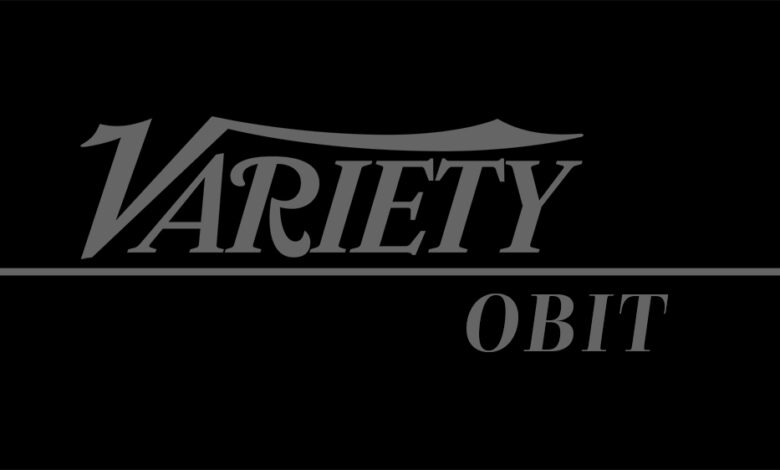Cable industry pioneer and founder of HBO was 98

Charles Dolan, an early cable industry titan who owned Cablevision, launched HBO and AMC Network and later expanded to iconic locations and sports teams in New York, has died. He was 98.
Dolan’s death was reported Saturday by Newsday, the Long Island newspaper owned by the Dolan family.
Dolan’s influence in shaping today’s television world cannot be overstated. In 1961, he began the process of cabling New York with the launch of Manhattan Cable Television. Ten years later, in 1971, he had the vision to launch Home Box Office as a service that would partner with Hollywood studios to distribute films. He was a pioneer in leveraging satellite technology to accelerate the distribution of cable programs across the country.
From 1973 to 1985, Dolan was the founder and general partner of the cable company serving Long Island, which grew into Cablevision’s multi-system operator serving one of the country’s most lucrative markets. He was CEO of Cablevision from 1985 to 1995. Cablevision’s programming division eventually morphed into AMC Networks, home to the channel that was founded as American Movie Classics. The company is now home to AMC Network, IFC, WeTV, SundanceTV, BBC America and streaming services such as AMC+ and Shudder. AMC Networks was spun off as a separate company from Cablevision in 2011.
Dolan has been chairman emeritus of AMC Networks since September 2020.
In one 2018 interview with the Annenberg School of Communication at the University of PennsylvaniaDolan explained that the concept for HBO grew out of a more limited service that Dolan’s company had put together to distribute films to luxury hotels in New York. The channel was launched in 1971 as the Green Channel, which also featured tourist-friendly information about New York. It was relaunched in 1972 as Home Box Office when Dolan and his partners received an investment from Time Inc.
“We subsequently discovered that the hotel people were telling us that the image we were giving to their guests in the hotel rooms was much better than the image they were getting from the television stations of all the regular television programs,” Dolan told Annenberg. “That got us thinking: maybe we can serve not only our customers and the hotels, but also the people of Manhattan. So we went back to the city and said, ‘Can we get a franchise to provide residents with better television service?’ They said, ‘Yes.’ And they gave us a franchise to serve the residents of Manhattan up to 89th Street on one side of the city and 72 Street on the other side of the city. That was the beginning.”
In the late 1990s, Dolan was the patriarch of the family that owned the New York Knicks, New York Rangers, Madison Square Garden and Radio City Music Hall. Dolan’s son James has taken over as top leader of MSG and other companies. The Dolan family sold Cablevision to Altice USA for $17.7 billion in 2016. Dolan’s descendants remain active in media and entertainment, most recently as endorsers of the Sphere Entertaiment Co., which has made a splash in Las Vegas with its immersive experience venue that is expanding to other cities.
Dolan, a native of Cleveland, served in the Air Force and attended John Carroll University before entering the media, according to a detailed biography published by the Syndeo Institutepart of the Cable Center in Denver. In the 1950s, Dolan and his 73-year-old wife, Helen, started a company from their home that produced short films of sporting events for syndication to local TV stations. That company was acquired by a larger group, causing the Dolans to move to New York. Eventually, Charles Dolan and partners launched Sterling Movies USA, which distributed industrial films to targeted audiences, usually groups meeting in convention hotels.
Around this time, cable television service began to take root in rural areas where residents had difficulty receiving clear TV signals. Big cities didn’t have much need for cable until Dolan realized that service could be spotty in parts of Manhattan because of tall buildings and other obstacles.
“While wiring a hotel to receive the Teleguide signal, Mr. Dolan realized that the same method could be used to bring cable television to individual homes in New York, where tall buildings posed obstacles to satellite signals. In 1964, Mr. Dolan approached the city with his idea. The following year, he was awarded a franchise to wire the lower half of Manhattan – thus began Sterling Manhattan Cable,” according to the Syndeo Institute biography. “Knowing that his fledgling cable service needed more customers to bring in more money, Mr. Dolan struck an unprecedented deal in 1968 with Madison Square Garden to carry the New York Knicks and Rangers playoffs exclusively on cable for $ 24,000. This would be the first of many local programs created by Charles Dolan.”
Nearly thirty years later, in 1997, Dolan’s business empire would gain full control of the Knicks and Rangers as well as Madison Square Garden after buying out its then-partner ITT.
Throughout his career, Dolan emphasized that his companies always focused on delivering unique content and innovative ways to distribute it to consumers. Technology, for Dolan, was a means to an end.
“This is what we believe in,” Dolan told the New York Times in 1997 when he took over MSG and the teams. “We are not active in the cable sector. We deal with content and programming. We are a regional company at heart, and when you see yourself that way, and Madison Square Garden is available, you can’t help but want it. Our whole goal is to give the public better access to more events.”
A year after HBO launched in 1972, Time Inc. exercising his option to buy out Dolan’s stake in the agency. Dolan used the proceeds to purchase a small cable service on Long Island that he would incorporate into Cablevision. When asked by researchers at the Annenberg Center in 2018 whether he regretted saying goodbye to HBO so quickly, he replied: “Every day.”
In later years, Cablevision led the way in embracing DVR technology, HD picture quality, video-on-demand options and other consumer-friendly innovations.
Helen Dolan died in 2023 at the age of 96. In addition to James Dolan, Charles Dolan’s survivors include five other children and numerous grandchildren.




